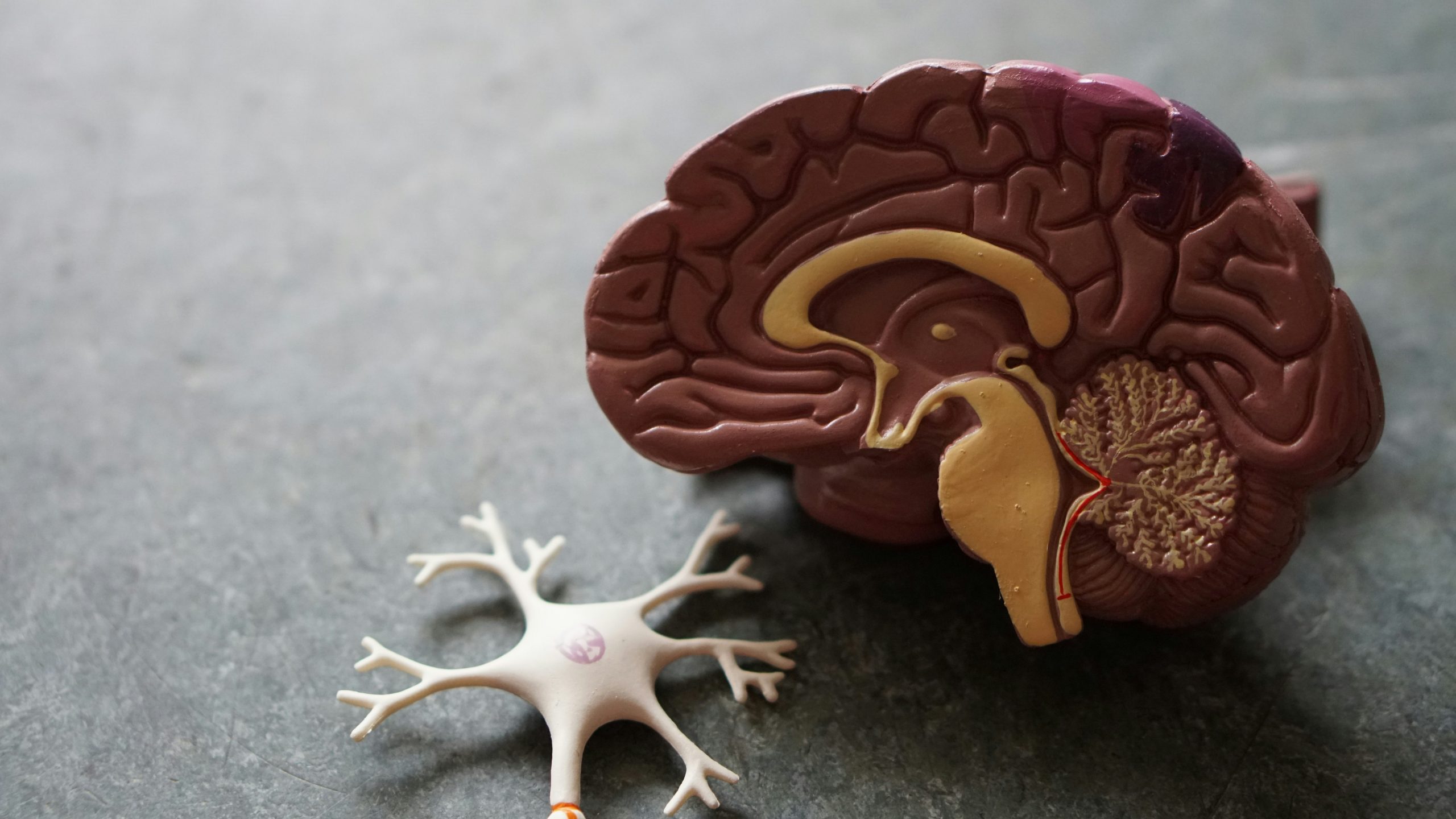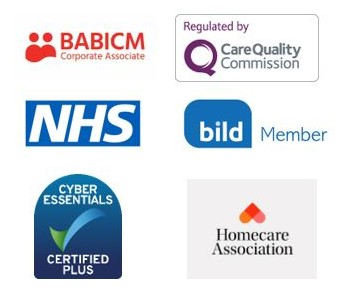Taking place annually in March, Brain Tumour Awareness Month highlights the often debilitating brain injury and the impact it can have on people’s lives. Symptoms of a brain tumour, range from: dysarthria (slurred or slow speech), fatigue and tiredness, to reduced awareness states such as locked-in syndrome.
In the following article, we explore the cause, types, effects, and the support our fantastic team delivers to people living with a brain tumour, or are living with the post-treatment impact of a brain tumour.
What are Brain Tumours?
Brain tumours are abnormal growths of cells within the brain or the central spinal canal. They can be classified into two main categories:
- Primary Brain Tumours: These are tumours that originate in the brain itself or in tissues close to it, such as the brain-covering membranes, cranial nerves, or glands like the pituitary gland. This category of brain tumour (PBTs) can be benign (non-cancerous) or malignant (cancerous).
Benign brain tumours typically have clearly defined borders and are not usually rooted deep within brain tissue, making them easier to remove. Although they are easier to remove, they can put pressure on the healthy tissue in the brain and subsequently this can compress and damage healthy tissue.
Unlike benign tumours, malignant brain tumours grow and spread rapidly. These cancerous brain tumours ‘invade’ surrounding tissue and eventually erode this.
- Secondary Brain Tumours (Metastatic): These are tumours that have spread to the brain from other areas of the body, such as lungs, breast, or colon. Metastatic brain tumours are always cancerous and commoner than PBTs.
What are the typical symptoms of Brain Tumours?
The symptoms of brain tumours often depend on the size, type, and location. However, there are some typical symptoms:
- Headaches that are often worse in the morning
- Nausea or vomiting
- Changes in speech, vision, or hearing
- Problems with balance or walking
- Changes in mood, personality, or ability to concentrate
- Memory problems
- Seizures or convulsions
- Numbness or tingling in the arms or legs
What are the differences between Brain Tumours and Other Brain Injuries?
Although a brain tumour is classified as an acquired brain injury (ABI), there are clear distinctions between brain tumours and other types of acquired brain injury:
| Aspect | Brain Tumours | Other Brain Injuries |
| Cause and Origin | Abnormal cell growth; unclear causes, possibly genetic or environmental factors | External force such as a blow, stroke, aneurism, or lack of oxygen |
| Nature of Condition | Can be benign or malignant; involves cell growth within the brain or adjacent structures | Result of physical trauma or acute events affecting the brain; not related to cell growth |
| Symptoms and Progression | Develop slowly; includes headaches, seizures, cognitive changes, depending on tumour location | Can appear immediately or evolve; include loss of consciousness, confusion, memory loss |
| Treatment | Surgery, radiotherapy, chemotherapy, or combinations | Emergency care, surgery, medication, rehabilitation, life-long support, and disability management |
| Long-term Implication | Possible recurrence, the need for ongoing monitoring; malignant tumours can shorten life expectancy | Range from complete recovery to permanent disability; dependent on injury severity and location |
How Empowering U supports those with brain tumours?
Brain tumours are considered to be a type of ABI. They affect people differently, based on their location, size, and type of tumour. The effects can range from mild to severe symptoms – headaches, seizures, personality chances and will vary from person-to-person. These effects are unique to each person, so tailored treatments and care plans need to be developed to meet each clients’ needs.
The removal of malignant brain tumours will often involve treatment such as:
- Chemotherapy
- Radiation Therapy
- Surgery
Although effective, the use of these techniques can result in diffuse brain injuries – affecting a large area. Some of the subsequent symptoms of this ABI (acquired brain injury) may be temporary, however there may be times when the symptoms become severe.
Following surgery and once ready to be discharged home, clients will often seek the support of care managers to assist them as they transition home. At this stage, our expert team will provide all of the support that is required for the client’s needs. Working with the client, their family and loved ones, and healthcare professionals, our specialist team guide them through the care and rehabilitation process. Through creating an understanding of what the client’s rehabilitative journey may look like, our team ensure communication and transparency is paramount.
“At Empowering U we focus on collaborating with individuals, their families and healthcare professionals to set realistic and achievable goals for the person’s rehabilitation and recovery journey” comments Rachel Cox – Clinical Lead within our Complex Care team.
“Our trained and experienced care teams foster a nurturing and motivational approach that encourages individuals to actively participate in their own rehabilitation.”
Our aim is to ensure a client regains full independence, however, there are case where this is not the outcome. For some clients, they are keen to return to work, live independently, and potentially study again. In these instances, we will work with the client and those involved with their care to ensure their requirements and needs are met.
However, for some clients this may not be possible. Therefore, bespoke care plans need to be introduced to meet individual goals. This may range from support in learning to dress themselves, self-care, socialising, or parental support. As with any brain injury, support is individualised and tailored to each client’s needs and requirements.
If you would like to speak about our services, please contact our friendly team on:



